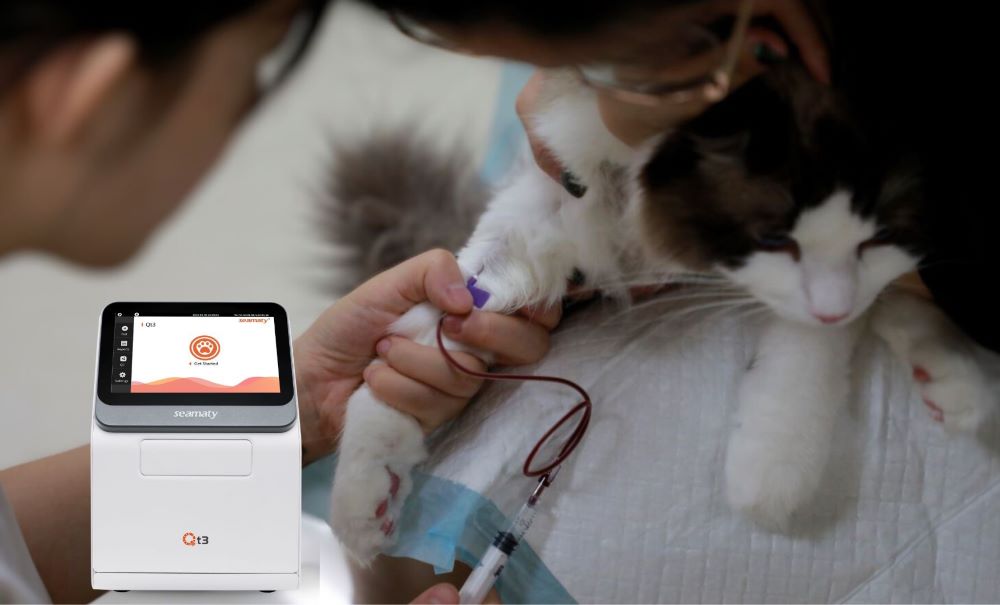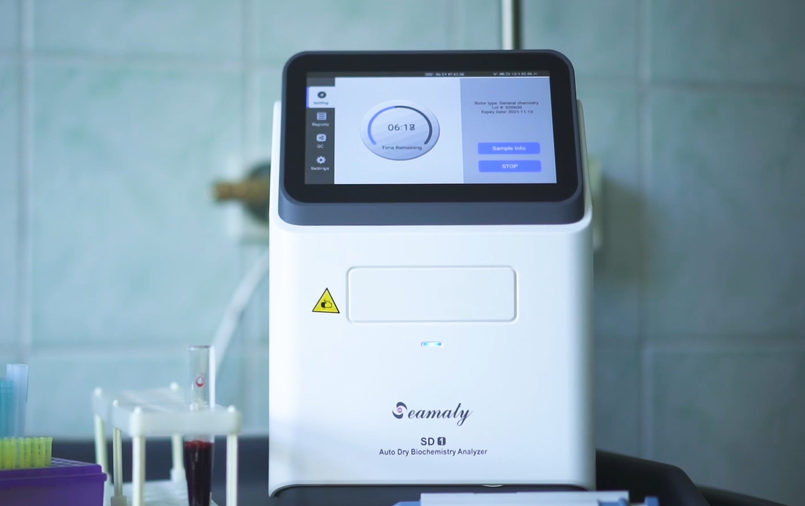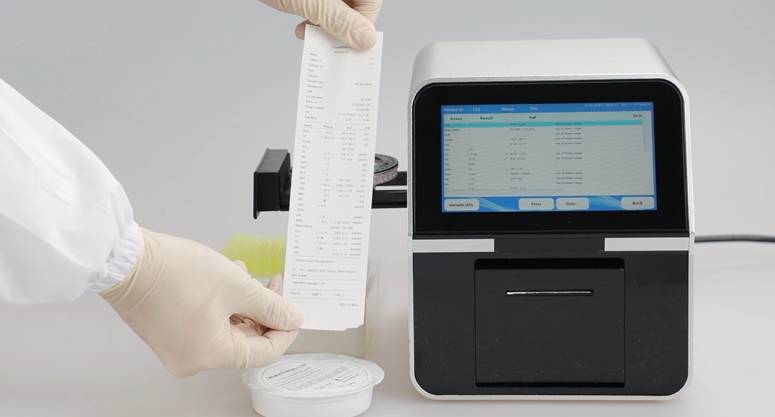release time:2024-08-28 15:05:34
The global veterinary medicine market was valued at USD 46.51 billion in 2023 and is projected to grow at a compound annual growth rate (CAGR) of 8.3% from 2024 to 2030, according to a report by Grand View Research Inc. This rapid growth highlights the increasing need for advanced diagnostic tools in veterinary care, including blood chemistry analyzers that offer quick, reliable results. Among these tools, Veterinary Blood Chemistry Analyzers are essential for modern clinics to provide precise diagnostics and elevate patient care. Here's why your vet clinic needs one.
A Veterinary Blood Chemistry Analyzer is an advanced diagnostic tool used to measure various chemical components in blood, such as enzymes, electrolytes, metabolites, and more. These analyzers provide essential information about an animal’s health, helping veterinarians make informed decisions regarding diagnosis, treatment, and monitoring. Blood chemistry analyzers are indispensable in veterinary clinics due to their accuracy, speed, and the broad range of tests they can perform.
In veterinary care, rapid and accurate diagnostics are crucial. Traditional diagnostic methods can be time-consuming and often require external labs, leading to delays in treatment. Veterinary Blood Chemistry Analyzers provide on-site results within minutes, allowing veterinarians to diagnose and treat animals more effectively. With the market for veterinary medicine growing, the demand for such immediate and accurate diagnostics continues to rise.
When selecting a Veterinary Blood Chemistry Analyzer, it’s important to consider factors such as ease of use, accuracy, versatility, and cost-effectiveness. A well-chosen analyzer can transform your clinic's diagnostic capabilities, making it more efficient and reliable.
One standout choice is the Seamaty Qt3 Veterinary Blood Chemistry Analyzer, an innovative tool based on microfluidic technology. This fully automatic chemistry analyzer is compact, easy to use, and designed to meet a wide range of diagnostic needs, making it an ideal choice for veterinary hospitals and clinics. Here are its main features:
Less Sample Volume: The Seamaty Qt3 requires a minimal sample volume of just 60µL of whole blood, making it friendly and safe for small and exotic animals where sample size can be a concern.
All-in-One Diagnostic Solution: The Seamaty Qt3 covers a comprehensive range of tests including biochemistry, coagulation, blood gas, electrolytes, and inflammation. This versatility meets a broad spectrum of diagnostic needs in veterinary practice.
Easy to Use: Utilizing advanced microfluidic technology, the Seamaty Qt3 automates the entire testing process. No professional operating skills are required; simply load and go, with rapid results available in just 9-12 minutes.
Flexible Testing Options: The analyzer is compatible with two types of reagent rotors—circular and sector—allowing flexible testing options. It can run up to three tests simultaneously, and users can choose from individual parameter tests or combination panels, offering customizable diagnostic solutions.
Accurate Results: Seamaty Qt3's patented reagent rotor design prevents cross-contamination of reagents, ensuring reliable and precise test outcomes. Its real-time quality control system continuously checks each test’s integrity, adding another layer of accuracy.
Low Maintenance: With no fluidics, the Seamaty Qt3 reduces complexity, associated costs, and maintenance requirements. This simplicity makes it a user-friendly, cost-effective addition to any clinic.
By integrating the Seamaty Qt3 into your practice, you can elevate your diagnostic capabilities, improve patient outcomes, and enhance overall clinic efficiency, aligning perfectly with the projected market growth.
Investing in a Veterinary Blood Chemistry Analyzer, like the Seamaty Qt3, is a strategic move to stay competitive in a rapidly growing veterinary market. With its advanced features, ease of use, and wide range of testing capabilities, the Seamaty Qt3 offers the precision and flexibility your clinic needs to provide top-tier care. As the demand for high-quality veterinary services continues to rise, equipping your clinic with cutting-edge diagnostic tools will ensure your practice remains at the forefront of veterinary care.

· What types of tests can the Seamaty Qt3 perform? The analyzer covers biochemistry, blood gas, electrolytes, coagulation, and inflammation, making it highly versatile.
· How much blood is needed for a test? The Seamaty Qt3 requires only 60µL of whole blood, ideal for small or exotic animals.
· Is the Seamaty Qt3 easy to maintain? Yes, with no fluidics involved, the analyzer is low-maintenance, reducing associated costs and complexity.
If you want to get more info, please contact Seamaty team.
2023-06-02
Explore trends and opportunities in medical lab equipment distribution. Discover how technology, online platforms, and data analytics are reshaping the industry. Overcome challenges, seize emerging markets, and embrace digital technologies to stay competitive and provide value to customers.

2022-04-11
Sterilisation is the physical or chemical removal of all microorganisms (including budding spores) from medical devices, dressings and other objects to a level of sterility in order to avoid the occurrence of infections and the spread of disease caused by medical devices during use.

2021-12-02
Biochemical testing is the eye of the doctor. It can help doctors determine the condition. However, many reasons can cause inaccurate biochemical test results. For example, inadequate preparation of patients, physiological factors and the application of drugs and other factors have a significant impact on the accuracy of biochemical test results. A few common reasons are listed below.